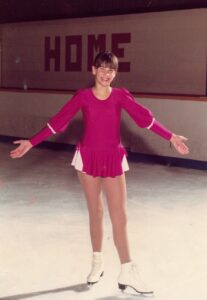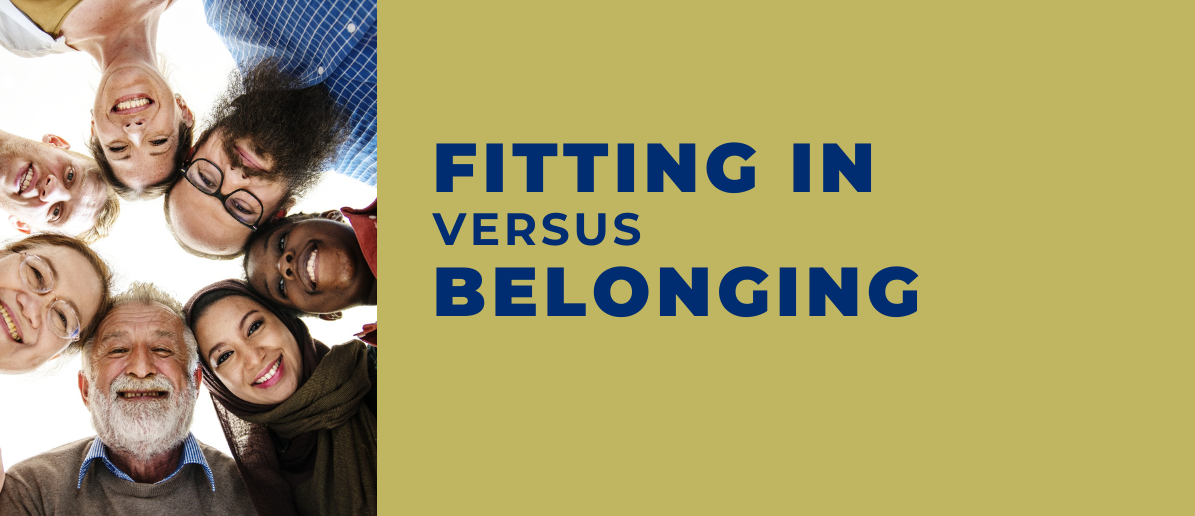I skated down the ice in my favourite raspberry-coloured costume, doing crossovers as I reached the end of the rink, then circling back, dreaming of the day I’d bring a gold figure skating medal to Canada.
Spoiler alert: it didn’t happen.
The circumstances that brought me to Centennial Park Skating Club, however, became the arena in which I learned the difference between fitting in and belonging.
Fitting In

I started skating when I was 8.
My mom signed me up because she remembered coming to Canada as an immigrant and going skating as a gym activity at school but not knowing how to do it. She felt embarrassed and never wanted me to feel the same way.
She wanted me to experience a Canadian childhood – to fit in – and that meant learning how to skate. For any of you who are first- or second-generation immigrants, this story may sound familiar. You could equally substitute “figure skating” with “hockey” or “Tim Horton’s.”
I used to see fitting in as a form of belonging. Learning to skate helped me fit in so I would belong to the larger (Canadian) group.
Belonging
Then I heard Brene Brown talk about fitting in versus belonging. She explained that fitting in and belonging are actually opposites.
Fitting in means accommodating to external norms by changing who you are. In contrast, belonging “never asks us to change who we are. It demands that we be who we are.”
As social animals, humans need to belong. You’ll discover belonging on the third rung of Maslow’s Hierarchy of Needs. Belonging is a pro-social function that bands groups. You achieve a sense of belonging through connection.
As I said, sometimes fitting in gets conflated with belonging. You think – hope – that by fitting in, you will therefore belong. If they’re opposites, though, as Brene points out, then fitting it actually creates disconnection between you and others.
The Role of Social Norms
Layering in the external environment, you absorb social norms by fitting in. For example, you learn to sit at a desk in school facing the front of the classroom so you can learn from the teacher for many hours each day. Those who don’t fit in, such as the disruptors and outliers, end up excluded from the group.
The pressure to fit in is real, driven by human wiring that seeks connection with others and societal pressure to conform. Social norms around fitting in become seen as the tool for belonging.
Self-Awareness
Brene identifies self-awareness as the key component that distinguishes fitting in from belonging. Self-awareness means knowing who you are and how you are perceived by others.
In fact, fitting in is the action that comes after belonging. Brene’s research shows belonging is being who you are. Fitting in is changing (i.e. the action behind) who you are.
Ironically, you can’t belong to the group unless you know who you are as an individual. Knowing who you are is the outcome of self-awareness.
Without self-awareness, Brene is saying you can’t experience a true sense of belonging.
Connection
Belonging satisfies the human need for external connection. You acquire your sense of belonging through internal connection, knowing who you are and your purpose in life.
I’m grateful to my mom for putting me in figure skating. It’s a skill that has served me for life in Canada, having the confidence that I can do winter sports with the rest of my group.
Connection is everything. I may not have won a gold medal for skating but skating gave me a gold medal in belonging.

